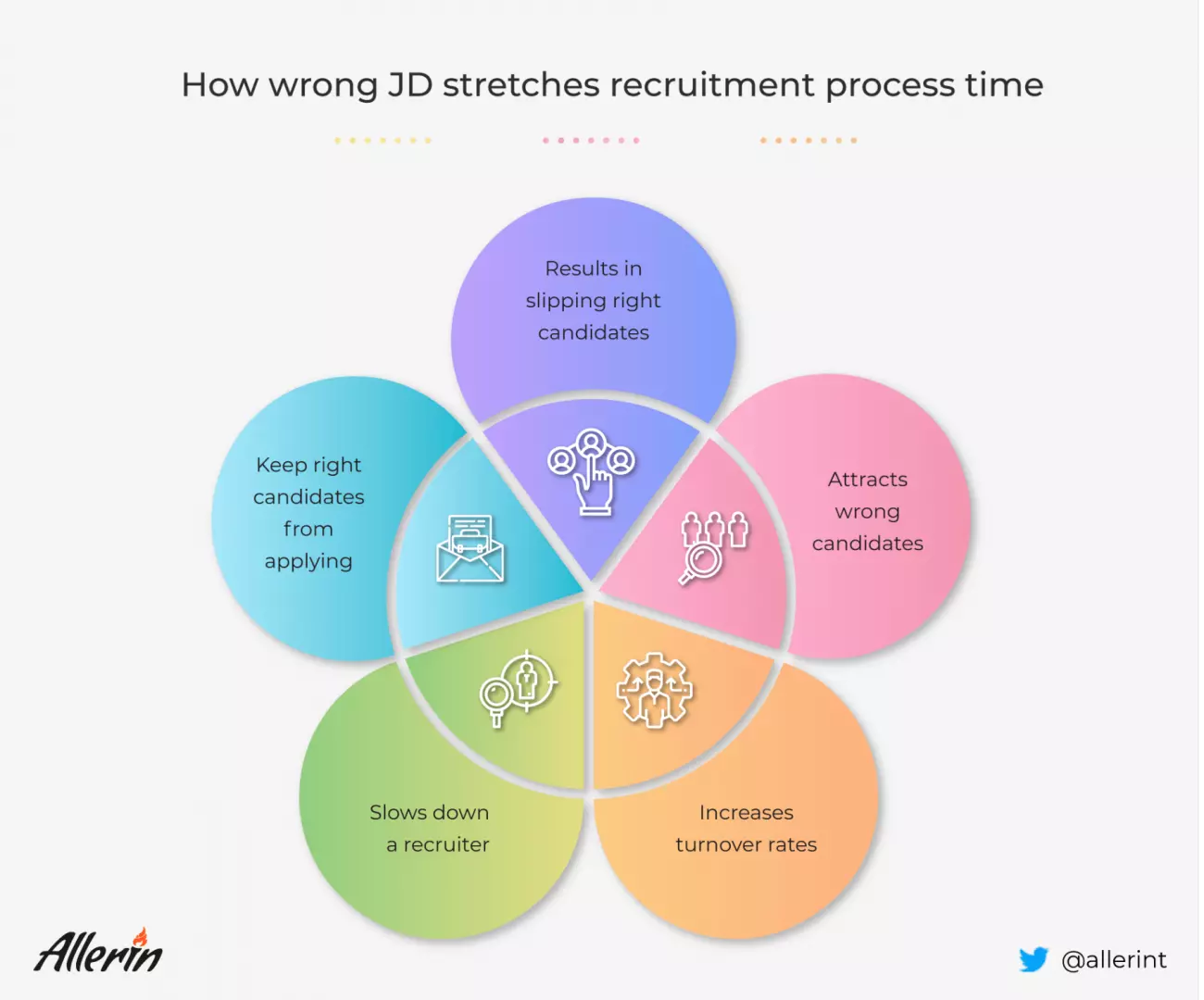1. Attracting Unqualified Candidates
Attracting more candidates is helpful, but only if the applicants have the relevant skills. Even the wrong job descriptions can attract more candidates, but most of them can be unqualified. One of the most significant purposes of job descriptions is to attract qualified candidates. But when your job descriptions are poor and unclear, it will also attract unqualified candidates along with qualified ones. Let’s assume that you want to hire candidates with native JavaScript skills, but your job description mentions knowledge of JavaScript as a requirement. You will get applications from candidates having JavaScript skills and not specific native JS skills. This will increase the time required in the resume screening process, especially if you are screening manually.
You might also end up losing the best candidates due to unclear job descriptions. ATS systems screen resumes based on keywords, and poor job descriptions can have irrelevant keywords. This can lead to rejecting even the best candidates with skills relevant to the job but not the job description. In fact, a study reveals that 75% of resumes are never seen by recruiters. Hence, even if a candidate somehow understands your job description and applies for the job, ATS systems will reject him or her based on keywords.
2. Slowing Down Recruiters
Usually, a person who writes a job description is different from the one who screens resumes. Hence, job descriptions don’t just provide information for the required skills to applicants, but also to the first respondent recruiters. A poorly crafted job description can confuse recruiters and lead to wrong hiring decisions, which can cost organizations. Also, when confused about job descriptions, recruiters would need to get clarity about the same. This can increase the back and forth of conversations for a clear understanding between recruiters and the ones who write job descriptions, which can stretch the recruitment process.
3. Increasing Turnover Rates
A poor job description can result in hiring a bad candidate with little to no relevant skills. This can lead to a hired candidate leaving the job quickly and increase the turnover rate. For instance, if a new employee feels there is a difference between their skills and job responsibilities, they might want to switch jobs. The increased turnover rate can lead to the re-hiring of employees for vacant positions and result in a stretched recruitment process. Businesses need a Recruitment Intelligence solution that can self-learn in time. A recruitment intelligence solution will assist hiring managers to write strong and precise job descriptions that can shorten the recruitment process. With self-learning capabilities, recruitment intelligence can also create automated job descriptions, which can then be verified by hiring managers. Thus you can leverage a RI-based automated recruitment system for smarter hiring.




Leave your comments
Post comment as a guest